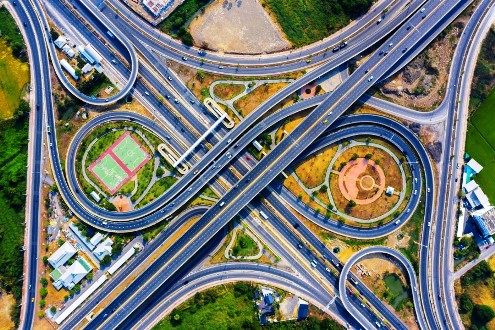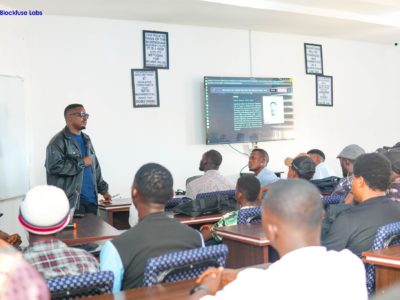By Temitope Ajayi
Africa, a continent known for its vibrant cultures and breathtaking landscapes, is also home to some of the most challenging transportation systems in the world. With rapid urbanization and a growing population, the demand for efficient and reliable transportation infrastructure has never been greater. Fortunately, the rise of artificial intelligence (AI) presents a unique opportunity to revolutionize Africa’s transportation systems, optimizing infrastructure and reducing congestion.
RELATED: Closing the loop between artificial intelligence and robotic experiments
Congestion has long been a pressing issue in African cities. Traffic jams not only waste valuable time and energy but also have detrimental effects on the environment and the economy. According to a study conducted by the World Bank, congestion costs African economies an estimated $2 billion annually. With limited resources and a need for sustainable solutions, AI offers a promising way forward.
One of the key applications of AI in transportation is the optimization of traffic flow. By leveraging real-time data from various sources such as sensors, cameras, and mobile devices, AI algorithms can analyze traffic patterns and make predictions to optimize traffic signal timings. This technology, known as adaptive traffic signal control, has been successfully implemented in cities around the world, resulting in significant reductions in travel times and congestion.
In Africa, where traffic signals are often poorly synchronized and manual adjustments are time-consuming, AI-powered adaptive traffic signal control can be a game-changer. By dynamically adjusting signal timings based on real-time traffic conditions, AI can ensure a smooth and efficient flow of vehicles, reducing congestion and improving overall travel experience.
Furthermore, AI can enable the development of smart transportation systems that integrate various modes of transportation seamlessly. In many African cities, public transportation networks are fragmented, leading to inefficiencies and limited options for commuters. AI can help optimize routes, schedules, and ticketing systems, making it easier for people to navigate the city using a combination of buses, trains, and other modes of transportation. This integration can lead to increased ridership, reduced reliance on private vehicles, and ultimately, a more sustainable transportation ecosystem.
Another area where AI can make a significant impact is in the planning and design of transportation infrastructure. Traditional methods of infrastructure planning often rely on historical data and assumptions, leading to suboptimal solutions. AI can analyze vast amounts of data, including demographic trends, population density, and economic indicators, to generate accurate predictions and optimize the design of roads, railways, and other transportation systems. By considering factors such as projected population growth and land-use patterns, AI can help policymakers make informed decisions that result in more efficient and cost-effective infrastructure.
However, implementing AI-powered transportation systems in Africa comes with its own set of challenges. Limited access to reliable data, inadequate infrastructure, and a shortage of skilled professionals are some of the obstacles that need to be overcome. Governments and private sector entities must collaborate to address these challenges, investing in data collection infrastructure, training programs, and research initiatives to unlock the full potential of AI in transportation.
Moreover, it is crucial to ensure that AI-powered transportation systems are inclusive and accessible to all segments of society. In Africa, where income disparities are prevalent, it is essential to consider the needs of low-income communities and provide affordable and equitable transportation options. AI can help optimize public transportation routes and fares, making them more accessible to marginalized communities and improving overall mobility for all.
In conclusion, improving transportation systems in Africa is a complex task that requires innovative solutions. AI presents a unique opportunity to optimize infrastructure and reduce congestion, ultimately improving the quality of life for millions of Africans. By leveraging AI algorithms to optimize traffic flow, integrate various modes of transportation, and inform infrastructure planning, African cities can transform their transportation systems into efficient, sustainable, and inclusive networks. With the right investments and collaborative efforts, Africa can pave the way for a brighter future, where transportation is no longer a barrier but a catalyst for growth and development.
Temitope Ajayi is the Founder of AiCopyX, an AI Content Writer for Small Businesses.





























